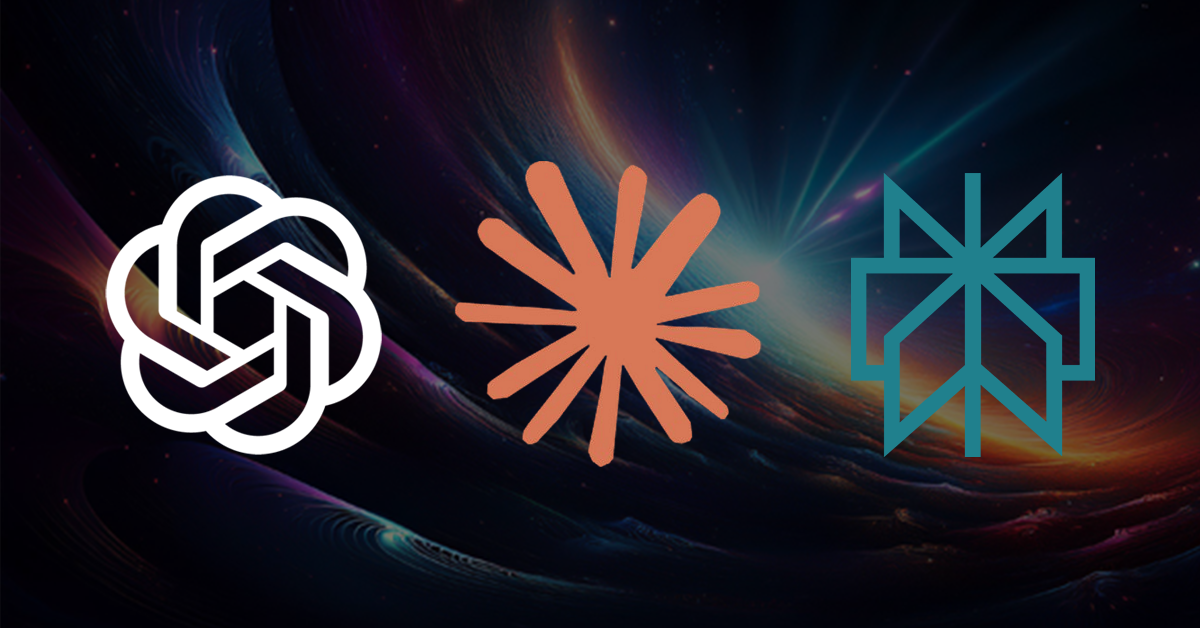When you’re deeply immersed in certain communities, it’s easy to feel like you’re in an echo chamber. I’ve noticed this especially when it comes to AI tools. Within the circles I’m a part of, there’s no shortage of specialized AI solutions for everything from content generation to workflow optimization. Yet, outside of these bubbles, the general public often only recognizes the AI tools promoted by search engines or the tech giants. While these are incredible in their own right, they’re just the tip of the iceberg in terms of what’s out there.
It’s been some time since AI went from being a niche tool to becoming an integral part of how we work, learn, and create. With tools like ChatGPT, Claude, and Perplexity, the possibilities feel endless—but which one fits your needs? Each of these tools has a unique focus, approach, and benefits, making the choice highly dependent on what you’re trying to achieve. Let’s break it down.
ChatGPT: The Adaptable All-Arounder
ChatGPT has made waves for being highly capable, reliable, and flexible. It’s a tool I’ve found to be especially helpful for tackling diverse tasks—from answering complex questions to assisting with creative projects or even debugging code. If you’re looking for something to help streamline workflows, think strategically, or create something entirely new, ChatGPT feels like a natural go-to.
Key Benefits:
• Wide Use Cases: Perfect for professionals, creators, and developers. Its adaptability shines in creative brainstorming, technical problem-solving, or everyday assistance.
• Deep Context Understanding: Handles nuanced conversations well, even when they stretch across multiple exchanges.
• Advanced Integrations: Tools like code execution, image generation, and browsing give it a practical edge.
If I had to pick one word for ChatGPT, it would be “versatile.” It’s like having an assistant who doesn’t just answer questions but thinks through them with you.
Claude: The Conversational Empath
Claude feels like that friend who listens intently, offers thoughtful advice, and keeps your best interests in mind. Developed by Anthropic, Claude prioritizes safety and human-like communication. It’s a tool that stands out in scenarios where tone, empathy, and user-friendliness are paramount.
Key Benefits:
• Approachable and Natural: Conversations with Claude feel more casual and human, making it ideal for education, mental health, or team collaboration.
• Ethics at Its Core: The focus on safe and non-harmful responses ensures you won’t accidentally end up in problematic territory.
• Simpler Interface: It’s straightforward, which means less time figuring out how it works and more time just using it.
Claude excels in situations where understanding context and tone matter more than technical depth. If ChatGPT is the sharp multitasker, Claude is the empathetic listener.
Perplexity: The Research Specialist
Perplexity is the AI I’d turn to when I need answers with receipts. It’s research-focused, offering direct citations and transparency—a rarity among AI tools. If you’re a researcher, student, or knowledge worker, this tool can save you hours of hunting for sources.
Key Benefits:
• Trustworthy and Transparent: Every response includes citations, which adds a layer of reliability. Great for fact-checking or diving deeper into a topic.
• Efficiency in Research: Quick, concise, and to the point, it helps you get the information you need without wading through unnecessary details.
• Focused on Learning: Perplexity leans heavily into educational and research contexts, making it a strong choice for academic or professional work.
For those who prioritize accuracy and transparency above all else, Perplexity might feel like the AI companion you’ve been waiting for.
How Do They Stack Up?
Here’s how they compare at a glance:
| Feature | ChatGPT | Claude | Perplexity |
|---|---|---|---|
| Best At | Versatility and creativity | Human-like conversations | Research and fact-checking |
| Key Strength | Advanced tools and context understanding | Empathy and safety | Transparency and citations |
| Tone | Professional and flexible | Relatable and conversational | Objective and concise |
| Ideal For | Professionals, creators, and developers | Education, brainstorming, or sensitive topics | Researchers, students, and analysts |
So, Which Should You Choose?
It depends. If you need a tool that can juggle multiple tasks and adapt to various contexts, ChatGPT is your best bet. If tone and safety are important (especially for collaboration or sensitive topics), Claude will feel like the right fit. And if transparency and research capabilities are at the top of your list, Perplexity is unmatched.
Personally, I’ve found myself gravitating toward ChatGPT for its ability to help me across different domains—whether it’s brainstorming a new project, summarizing complex ideas, or assisting with development work. That said, having tried all three, I see the value each one brings to the table.
Moving Forward
As AI continues to evolve, tools like ChatGPT, Claude, and Perplexity will only get better at serving specific needs. The lines between them may blur as their capabilities expand, but for now, their distinct strengths make them complementary. Why choose just one when you could potentially use all three for different aspects of your workflow?
As an aside: In terms of development work, each of the above tools has its own pros and cons. ChatGPT’s ability to debug code and generate documentation is incredibly helpful, while Claude’s human-centric approach can aid in brainstorming and refining development strategies. Perplexity excels in research-heavy tasks, such as exploring libraries or frameworks with reliable citations.
In addition to these, specialized tools like v0, which simplifies the creation of code snippets and prototyping, and Cursor, a context-aware coding assistant for development environments, bring additional value. TabNine, known for its AI-powered code completion, and GitHub Copilot, which offers in-line suggestions based on GitHub’s extensive repository data, are also popular options for developers. Together, these tools complement ChatGPT, Claude, and Perplexity, creating a versatile toolkit for troubleshooting, optimizing workflows, and accelerating development projects.
What’s your go-to tool right now? Have you tried using these in tandem?
